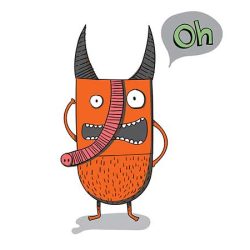WordPress hooks are a powerful feature that allow developers to modify or add to the core functionality of WordPress without modifying the code. Hooks are divided into two types – action hooks and filter hooks – and both play important roles in extending the functionality of WordPress. In this article, we’ll explore the different types of hooks in WordPress, and the functions they serve.
Types of Hooks in WordPress
- Action Hooks: Action hooks are used to execute code at specific points in the WordPress execution process. They are used to modify output, or to perform additional actions when specific events occur. Examples of action hooks in WordPress include
wp_headandwp_footer. - Filter Hooks: Filter hooks allow you to modify the output of a WordPress function before it is displayed. They are used to modify the content of posts or pages, or to change the behavior of a WordPress function. Examples of filter hooks in WordPress include
the_titleandthe_content.
Functions of Hooks in WordPress
- Customization: Hooks allow developers to customize the functionality of WordPress without modifying the core code. This means that WordPress can be updated without losing any customizations.
- Modularity: Hooks promote modularity by allowing developers to add or remove functionality from WordPress. This makes WordPress more flexible and easier to manage.
- Compatibility: Hooks ensure compatibility between WordPress themes and plugins. Developers can modify the behavior of WordPress functions without breaking the functionality of other themes or plugins.
FAQ
Can non-developers use hooks?
While hooks are primarily used by developers, non-developers can use them with the help of plugins or tutorials.
Are hooks safe to use?
Hooks are safe to use when used correctly. It is important to follow best practices and test your code thoroughly before using it on a live website.
What happens if a theme or plugin does not use hooks?
Themes and plugins that do not use hooks may be harder to customize or extend. This can make it difficult to update WordPress or add new functionality.
Conclusion
Hooks are an essential feature of WordPress that allows developers to modify or add to the core functionality of WordPress without modifying the code. Understanding the different types of hooks in WordPress, and the functions they serve, is important for developers who want to extend the functionality of WordPress. By using hooks, developers can customize WordPress, promote modularity, and ensure compatibility with other themes and plugins.
Last modified: April 25, 2023


![Top 5 Free Daily Forex Signals Telegram Channels [2023] Top 5 Free Daily Forex Signals Telegram Channels [2023]](https://wpfixlab.com/wp-content/uploads/2022/12/Top-5-Free-Daily-Forex-Signals-Telegram-Channels-2023.jpg)

